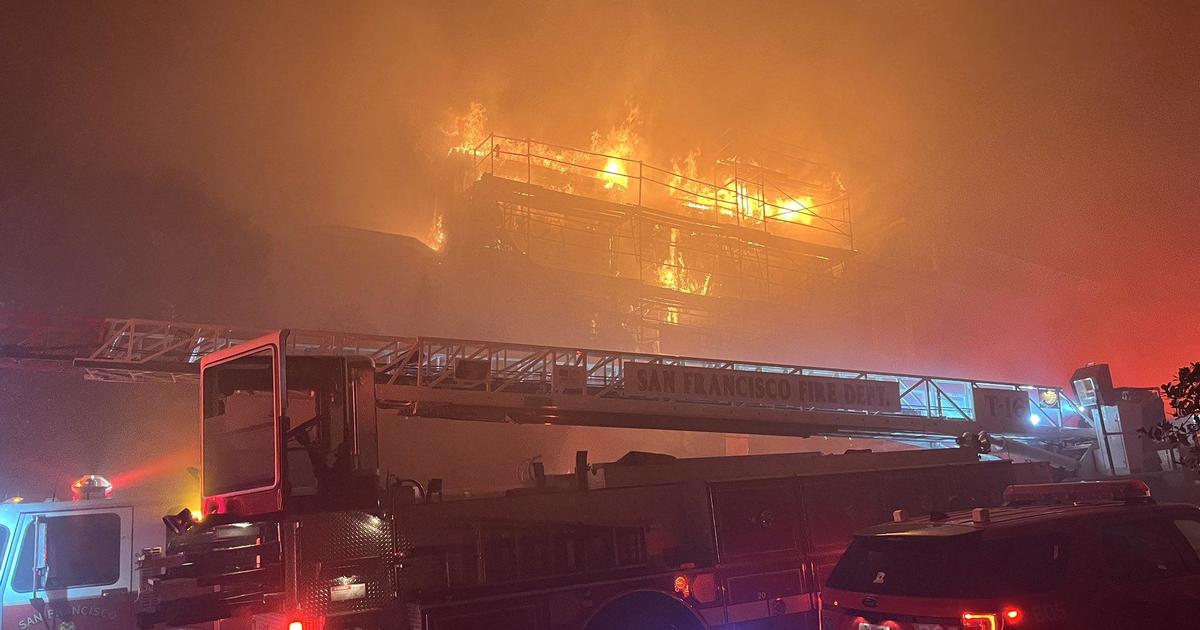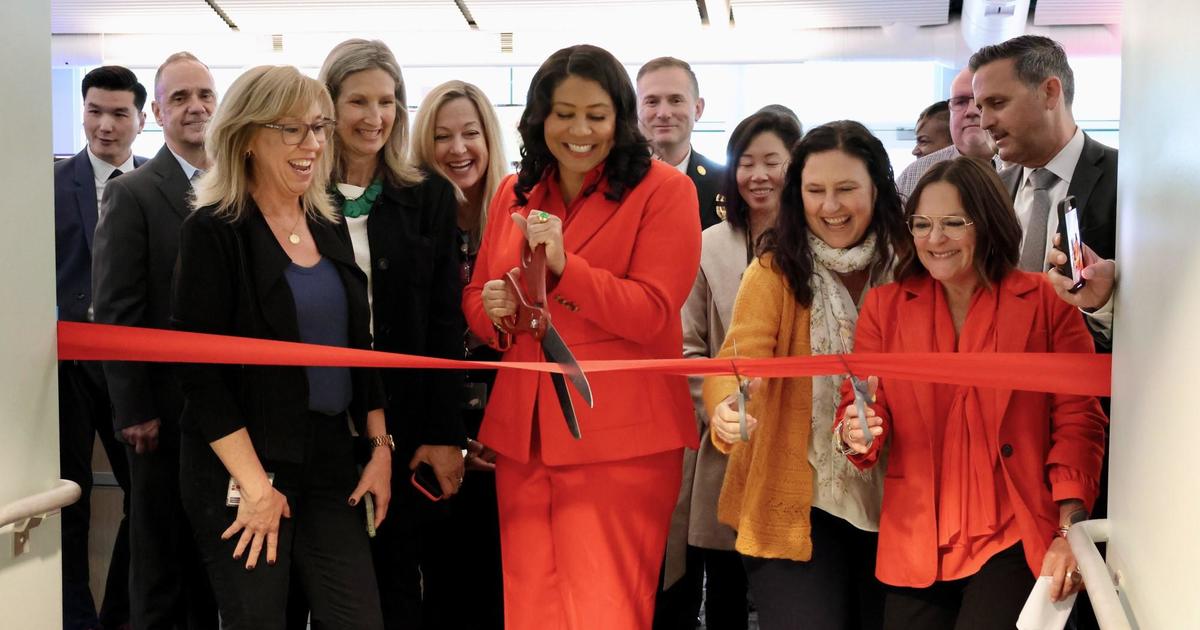CDC Says Fully Vaccinated People Can Gather With Each Other Without Masks
SAN FRANCISCO (CBS SF/AP/KPIX) -- As California surpasses the 10 million mark in vaccines distributed, the Centers for Disease Control and Prevention announced new guidance Monday that allows fully vaccinated Americans to gather with other vaccinated people indoors without wearing a mask or social distancing.
The CDC guidelines offer a potential roadmap to returning to normal once more people have an opportunity to get vaccinated, including being able to gather indoors without masks or socially distancing once fully vaccinated with others who are vaccinated. To be considered fully vaccinated, you must wait two weeks after the second dose for the immune system to protect against the virus.
State and county health officials will have final say if or when the new guidelines will take effect in the San Francisco Bay Area and elsewhere in the state.
Over the weekend, Newsom tweeted that the state had reached the 10 million vaccine distributed milestone.
The CDC recommendations also say that fully vaccinated people can gather with unvaccinated people from a single household who are low-risk for severe disease, such as in the case of vaccinated grandparents visiting healthy children and grandchildren.
"We have four delightful, great-grandchildren. And we've avoided contact with them because of this problem. And it will be delightful that we can get back together as a full family," said Claude Fletcher after receiving his second dose of the vaccine in San Jose.
The guidance is designed to address a growing demand, as more adults have been getting vaccinated and wondering if it gives them greater freedom to visit family members, travel, or do other things like they did before the COVID-19 pandemic swept the world last year.
"We know that people want to get vaccinated so they can get back to doing the things they enjoy with the people they love," said CDC Director Dr. Rochelle Walensky, in a statement.
University of California San Francisco Prof. George Rutherford said that caution still needs to be taken, however, especially at this critical time in the pandemic.
"This is a work in progress and we're not at the end at all," Rutherford said. "You have some chance, it's not zero, of becoming infected even if you've been vaccinated. If you're infected, you're also infectious and you could spread the virus. What we don't want to have happen is a big rebound now, especially with these variants."
Bob Rucker, who is a retired San Jose State professor, said that he will continue to take precaution even after he receives his second dose next week despite the CDC's newest guidelines.
"The reality is we just can't assume two shots and I'm good, because two shots are no guarantee until we know a lot more," Rucker said.
He and his husband, who he said has special needs, have been vaccinated. His sister, who has Down Syndrome, has also received the first dose. Rucker is her caregiver, and is the main reason why he has sheltered-in-place even when Santa Clara County loosened restrictions last year for several weeks.
He said that he lost a relative to COVID complications last summer.
"That's why I think we have to be cautious about spring break and summer travel," Rucker said. "I'm not trying to be a downer, but I am trying to be realistic. Nothing just happens like that."
The CDC is continuing to recommend that fully vaccinated people continue to wear well-fitted masks, avoid large gatherings, and physically distance themselves from others when out in public. The CDC also advised vaccinated people to get tested if they develop symptoms that could be related to COVID-19.
The CDC is continuing to discourage people from all non-essential travel. That recommendation was a tough sell for many newly vaccinated people who say they've cancelled or postponed trips while waiting for a chance to get a shot.
"Number one, I want to go see my mom. She lives on the East Coast. So, I'm going to get my second shot, check the statistics and then I'm jumping on a plane to go see her." says Fiona Smith.
The CDC is still urging caution, noting that it's not clear for how long the vaccines will confer protection and if they will remain effective in the face of emerging variants.
"The CDC is not encouraging travel. I think they're holding off on that because they're worried that too much sanctioned travel would spread a lot of COVID all over the U.S." said Dr. Peter Chin Hong an infectious disease expert at UCSF.
About 30 million Americans — or only about 9% of the U.S. population — have been fully vaccinated with a federally authorized COVID-19 vaccine so far, according to the CDC.
Authorized vaccine doses first became available in December, and they were products that required two doses spaced weeks apart.
Devin Fehely & Maria Medina contributed to this story.
© Copyright 2021 CBS Broadcasting Inc. All Rights Reserved. The Associated Press contributed to this report.



